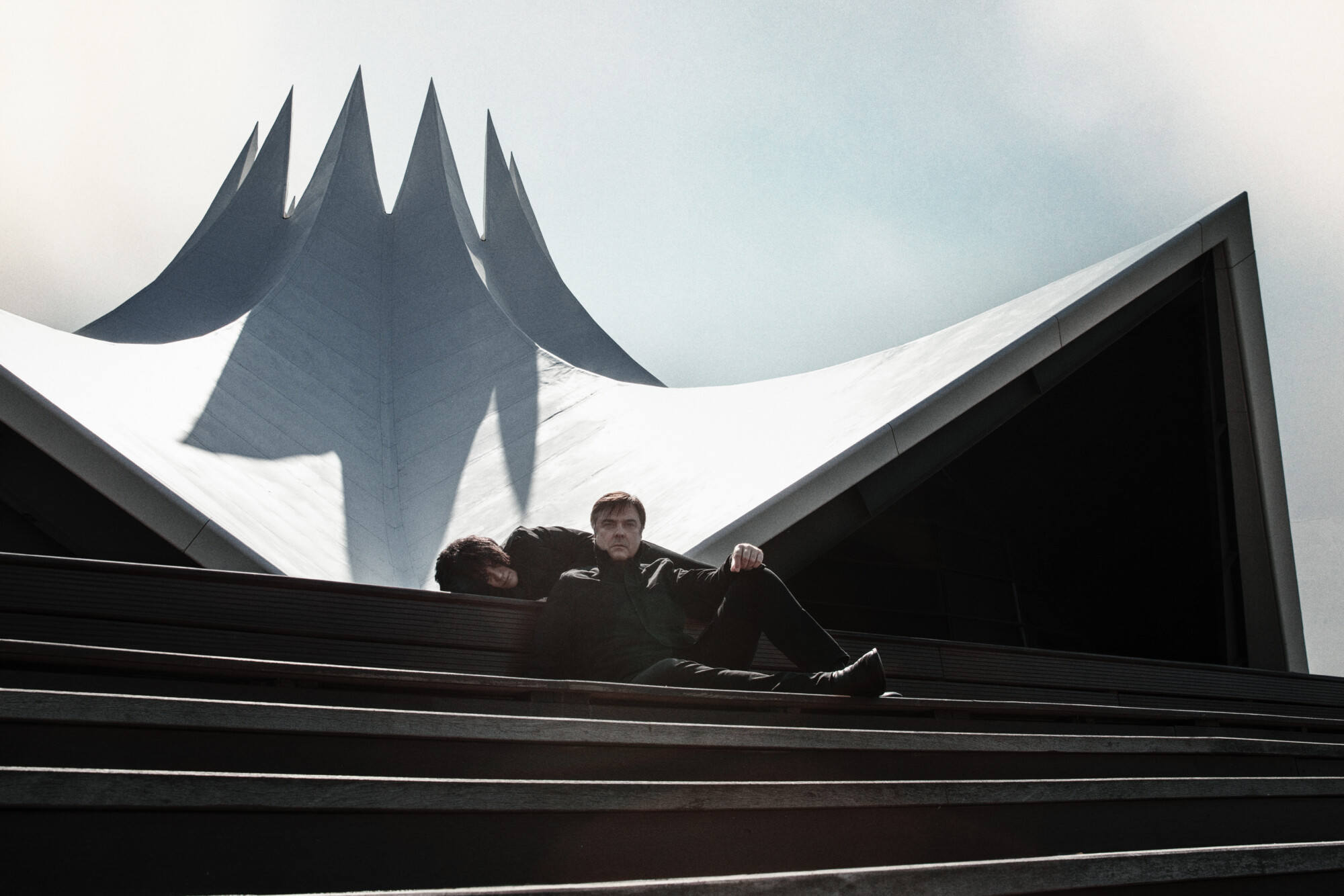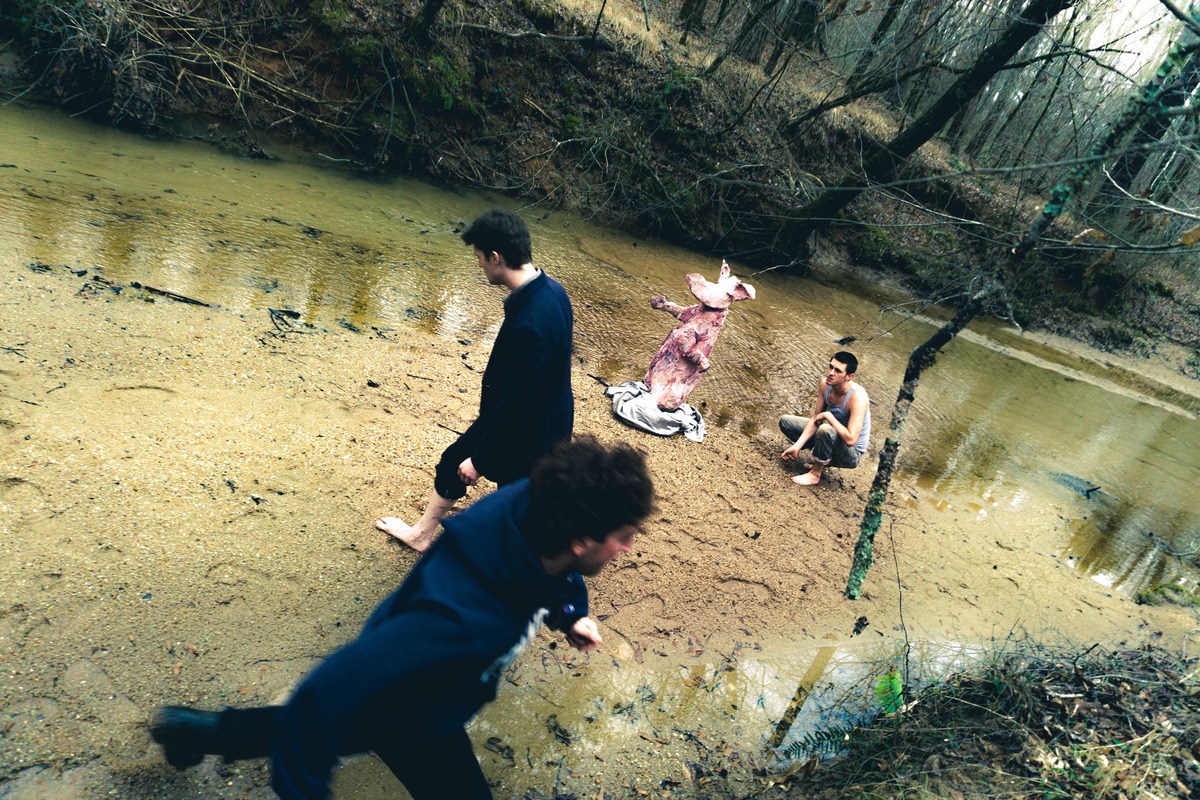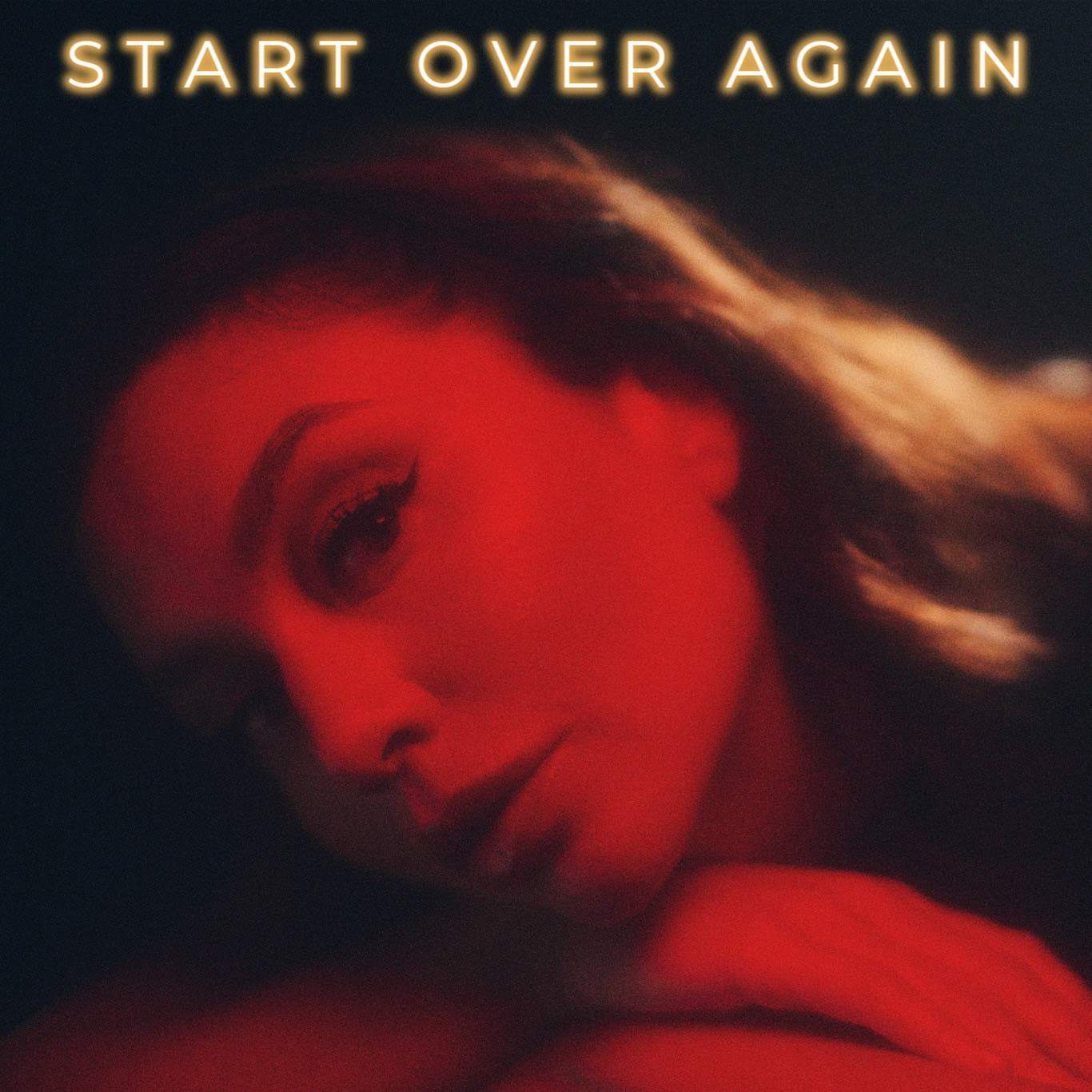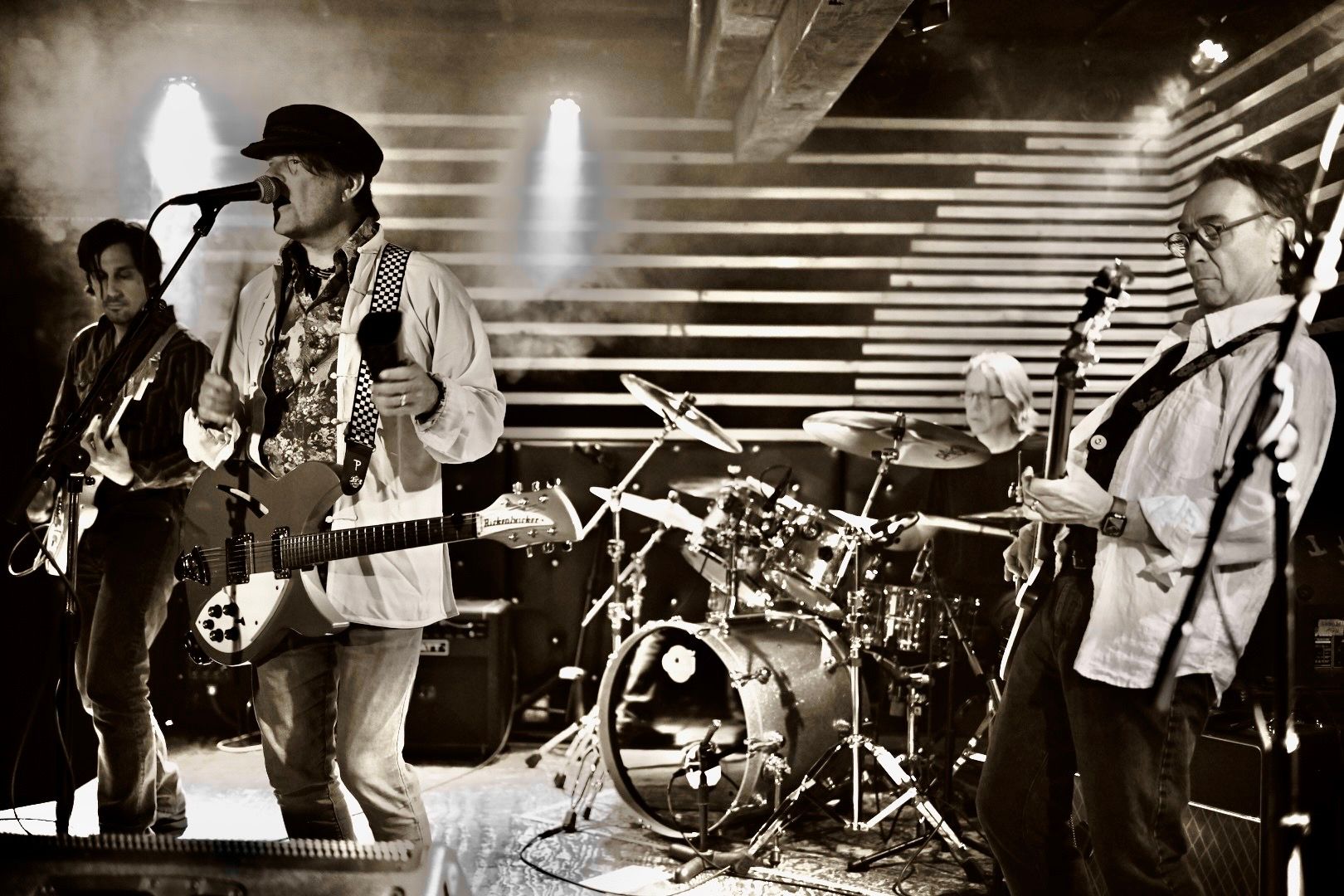Glen | Interview | New single, ‘Neos Kosmos’ of the upcoming album ‘I Can See No Evil’
Exclusive video premiere of ‘Neos Kosmos’ by Glen, taken from their upcoming album ‘I Can See No Evil,’ out October 20th, 2023 via Sound Effect Records.
The Berlin/Athens based instrumental unit will release their third album referring to the concept of evil that has become prominent not only in the usual demonizing fictional, religious and moral framings, but more so in political contexts especially when the fragility of civilization is challenged. A closer look could expose the cracks, injustice, disintegration, exploitation and decline of modern societies caused by political and financial ecosystems who benefit from it, but it seems more suitable to blame the divided nature of the human animal in general, to cover up that in every willful act there is a choice, decision and responsibility. Following up their promising previous second album ‘Pull!’ (2021), pursuing an abrasive reductionism, merging contrasting textures to a unique narration of swelling chords, melodic patterns and abstract noise, Glen sets with focused energetic turmoil their mark on the map of instrumental elegies.
Despite the dystopian background of the album, each track shines in lucid clarity and transparency with uplifting bright optimism that is not blind but in full awareness of the urgency of unrest and a look beyond the pixelated grid.

“The concept of evil has become quite prominent in political contexts”
How did the band originally begin and what was the overall vision?
Wilhelm Stegmeier: Eleni Ampelakiotou and I originally started just the two of us to develop ideas and work on new material, but we always had in mind to expand to a band lineup with guitars, bass and drums, and beyond that, whatever comes along as a texture idea is welcome. We like loud and noisy guitars. From the beginning the vision was to form a mostly instrumental band that does a lot of Improvisation like an improv jazz band but without doing jazz at all.
Eleni Ampelakiotou: We are longtime collaborators, besides other band projects we were involved before Glen, we have worked together on several films (Teenage Response, Ich Bin Hier) and audiovisual projects (Birth Of a Sphinx, Is This Tomorrow Or Just The End Of Time?), me as a director and Wilhelm as a composer. We both had the wish to work on material and concepts free from serving a movie image or dialog, where the music itself tells the story.
Would love if members of the band share some background, how they first got interested in music and what are some other bands you played before forming Glen.
Wilhelm: My father was an organ and keyboard player. Even if he was never a professional musician, he was very enthusiastic about making music and always had very good equipment. As a kid I learned the piano but then started to abuse his amps, drum-machines and organs to experiment with sounds. Also, without any permission, I took my sister’s western guitar, assembled a pickup on it and did massive loud feedback orgies while my father was at work. I wish to have this guitar now because it was perfect for this. My first instrument choice was a bass, and I think many Glen tracks are still based on a strong bassline, but finally I switched to guitar as my main instrument, besides bass and whatever instrument I choose to elicit a note out of it.
Eleni: I started playing guitar as a teenager, tricked by my father to take guitar lessons, and played mostly for my own pleasure. Years later, when I met Wilhelm, the first conversation we had was about film and music, and this is the path we have walked together since then.
Wilhelm: We had formed various other bands before Glen. Trapdoor was a noisy post punk band and Four Star Five, … we called it fake-pop…, the pop answer to no wave fake-jazz. Actually Glen‘s new bass player Roland Double Feinaeugle already was a member of Four Star Five and Glen‘s former bass player was already in Trapdoor.
So what eventually led to Glen?
Wilhelm: After Four Star Five we took a long break from having a band. Double started to train astronauts for the European Space Agency. Eleni was very busy as a filmmaker and I was composing a lot of film scores, as I enjoyed experimenting with various arrangements and being able to work with a large orchestra, still I always wanted to form a band again.
Eleni: Distancing myself from the movie business and turning to entire abstract films, opened another gate for me to finally form Glen, as Wilhelm never had stopped to compose band material even while he was working on his scores. When we started Glen we also had our experimental audio-visual project DOS Plus. Wilhelm and the Spanish jazz guitarist Antonio Bravo used to meet once a week on Wednesdays to perform and record a free improv session at our studio. It was a very interesting collaboration, as they had very different musical styles. I joined them creating abstract films for their performances to which they improvised.
You have a brand new album out, ‘I Can See No Evil’. How much time went into it?
Wilhelm: After the release of our second album ‘Pull!,’ we started to work on new material for the next album. ‘Pull!’ was released at the height of Corona, in May 2021. So after finishing ‘Pull!’ We were forced due to ongoing Corona restrictions to work on the new material again as a duo, as it was not yet allowed to come together as a band. So we started experimenting with using synthesizers, sequencers and drum machines. When the lockdown was lifted we did some sessions for instance with Lucia Martinez from Sevilla, which led to her playing on ‘Paradigma,’ ‘Anthem,’ ‘Neos Kosmos’ and ‘In The Midday Sun,’ more than half of the drum tracks on ‘I Can See No Evil’. As a jazz-drummer she comes from a completely different point of view than us, which was perfect for the tracks we recorded with her, as her transparent fragile drum style creates an intense contrast to the guitars. We had planned to work with two completely different drummers on this album, to create this specific contrasting atmosphere.
Can you share some further words about the recording and producing process?
Wilhelm: Eleni and I recorded the demos for the six tracks of the new album to share them with our collaborators, spread all over Europe. Finally we all got together, Roland Double came from Vienna, Lucia Martinez came from Sevilla. We recorded the basic tracks on four days at the legendary Tritonus Studio in Berlin, which is famous for its analogue Vintage recording equipment. The other half of the drum tracks on the album was performed by Achim Faerber, a very energetic, powerful drummer and very tight. Originally as the second drummer we had planned to record with our former drummer from ‘Pull!,’ but he had to cancel the recording session a couple of days before recording for personal reasons. Luckily Achim Faerber stepped in. We had never before played with Achim, but it worked out very well and his drum style is perfect for the tracks, ‘Polymorphine’ and ‘Strike,’ and the second drum on ‘Paradigma’. After the basic tracks, Eleni and I worked on the recordings, did some editing and additional recordings. In this line up we performed some of the material for the first time live at the Side Effects II festival in Athens, a 25 year celebration of our partner label Sound Effects Records, which was great fun.
Eleni: Having to deal with the Covid restrictions around the recordings of ‘Pull!’ We were forced to work across long distances. So having to deal with this again during the composing and rehearsal process of ‘I Can See No Evil,’ we were quite experienced to collaborate with musicians across long distances. So the trumpet on ‘Neos Kosmos’ was performed by Jeff Hermanson in New York. Like the previous album, ‘I Can See No Evil’ was mixed by producer legend Mack, who started his career in Giorgio Moroder’s Musicland Studios, working with bands like Marc Bolan’s T. Rex, Led Zeppelin, The Rolling Stones, early Deep Purple, Black Sabbath, Sparks, et cetera and produced some of Queen’s most acclaimed albums.
Wilhelm: Once again this was a great experience. It is magic to witness how he builds a mix. He reveals the dramaturgy of every track and embeds every instrument in lucid transparency. Despite his great musical background he feels challenged by what we do and has fun working on something probably very different from what he did with Queen. We feel very honored to work with him and that we still can challenge him.
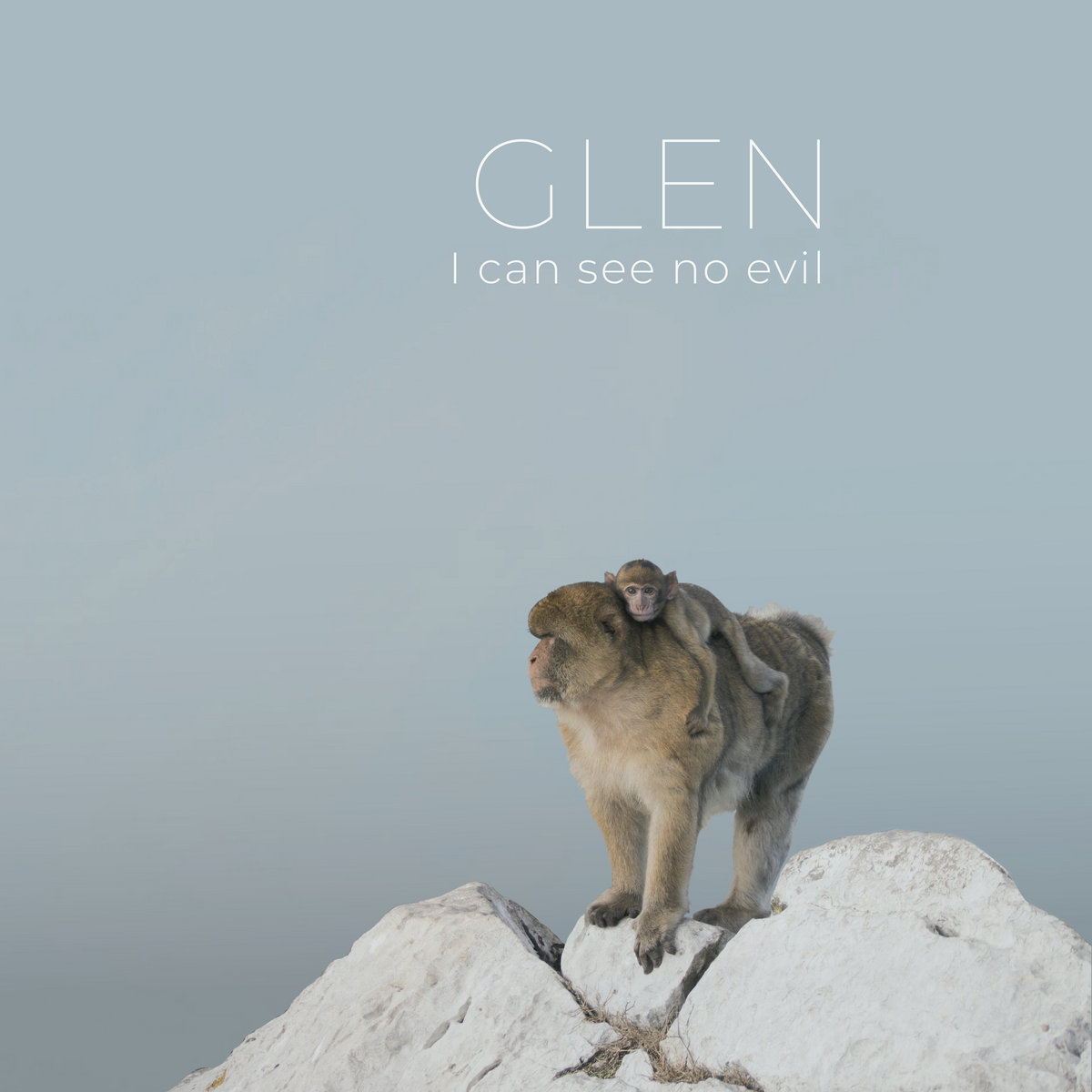
Would you like to discuss some of the tracks off the album? Do you see it as a concept album?
Eleni: Working on the album Wilhelm and I had many conversations circling around the concept of evil. We are used to the usual demonizing fictional, religious and moral framings. But in recent times, the concept of evil has become quite prominent in political contexts. Instead of exposing the injustice, exploitation and decline of modern societies caused by political and financial ecosystems who benefit from it, it seems more suitable to blame the divided nature of the human animal in general, blurring the fact that in every wilful act there is a choice, decision and responsibility. Like the little monkey staring at us from the front cover with eyes wide open that do not know where to look, our gaze is directed into a pixelated void where all words that were spoken seem not enough to get anything said, heard and done, to acknowledge the suffering of many under the power of a few. The album oscillates between our awareness of a dystopian reality with the tracks on the A Side ‘Paradigma’, ‘Anthem’ and ‘Polymorphine,’ and the hope for a better future on the B Side, the dawning of some kind of an illusionary ‘Neos Kosmos,’ paired with the disbelief that no better future will appear in the peaceful atmosphere of ‘In The Midday Sun’ without our call for unrest and resistance like in ‘Strike’. The album is enveloped in an art work created by George Fotopoulos who added another layer to the concept, inspired by Superstudio, an Italian radical group of young architects in the late 60s and 70s who, equally disappointed about politics, developed futuristic forewarning images of an urban and environmental dystopia. Their series “Continuous Monument” shows a monolithic shape slicing through landscapes, overlaying rivers and cities as a warning against the dangers of urban expansion, while making fun of capitalist excess. Unfortunately their then dystopian warning is currently being realized as a project in the desert called The Line.
How would you compare it to ‘Pull!’.
Eleni: Starting with what ‘Pull!’ and ‘I Can See No Evil’ share is a purposeful ambiguity of the title. While ‘Pull!’ focuses on mythical characters, historic events and endeavours of the past, ‘I Can See No Evil’ turns to the not so futuristic dystopia of the now. The title of the album ‘Pull!,’ the track ‘Ahab’ and the artwork refer to Mocha Dick, a famed aggressive whale, that was first mentioned in 1839 in a story published in The Knickerbocker, New-York Monthly Magazine, which was likely an inspiration for Melville’s Moby Dick. Mythical Characters like Ahab, unbearable endeavours like ‘Korinth’ and the Rosebud like enigma of ‘Davos’ are open to multiple interpretations, a ‘Lecture’ on madness, bliss, obsession, greed and tragedy of mankind enveloped in an album cover that was shot in the abandoned offices of the Athens Stock Exchange. Entirely instrumental ‘Pull!’ includes a single surprising vocal track, a mysterious version of John Cale’s ‘Buffalo Ballet’. Usually we had planned to record ‘In The Midday Sun’ as the final track on ‘Pull!’ but again due to Covid restrictions we were not able to record this track with the band, which is crucial as it is a very loose atmospheric track that has to be recorded with the entire band present. So it was Wilhelm’s idea that we record John Cale’s ‘Buffalo Ballet’ with just the two of us, with no band at all to complete the album. ‘Buffalo Ballet’ is one of Wilhelm’s favourite John Cale songs, and it has a comparable atmosphere to ‘In The Midday Sun’. We refer to this entire situation with the title, as the original track title was ‘Seagulls,’ which would have fitted perfectly into the seafaring theme of ‘Pull!’. We succeeded to turn an obstacle then, to an advantage as ‘In The Midday Sun’ captures beautifully on the new album a seemingly peaceful moment before the storm of ‘Strike’.
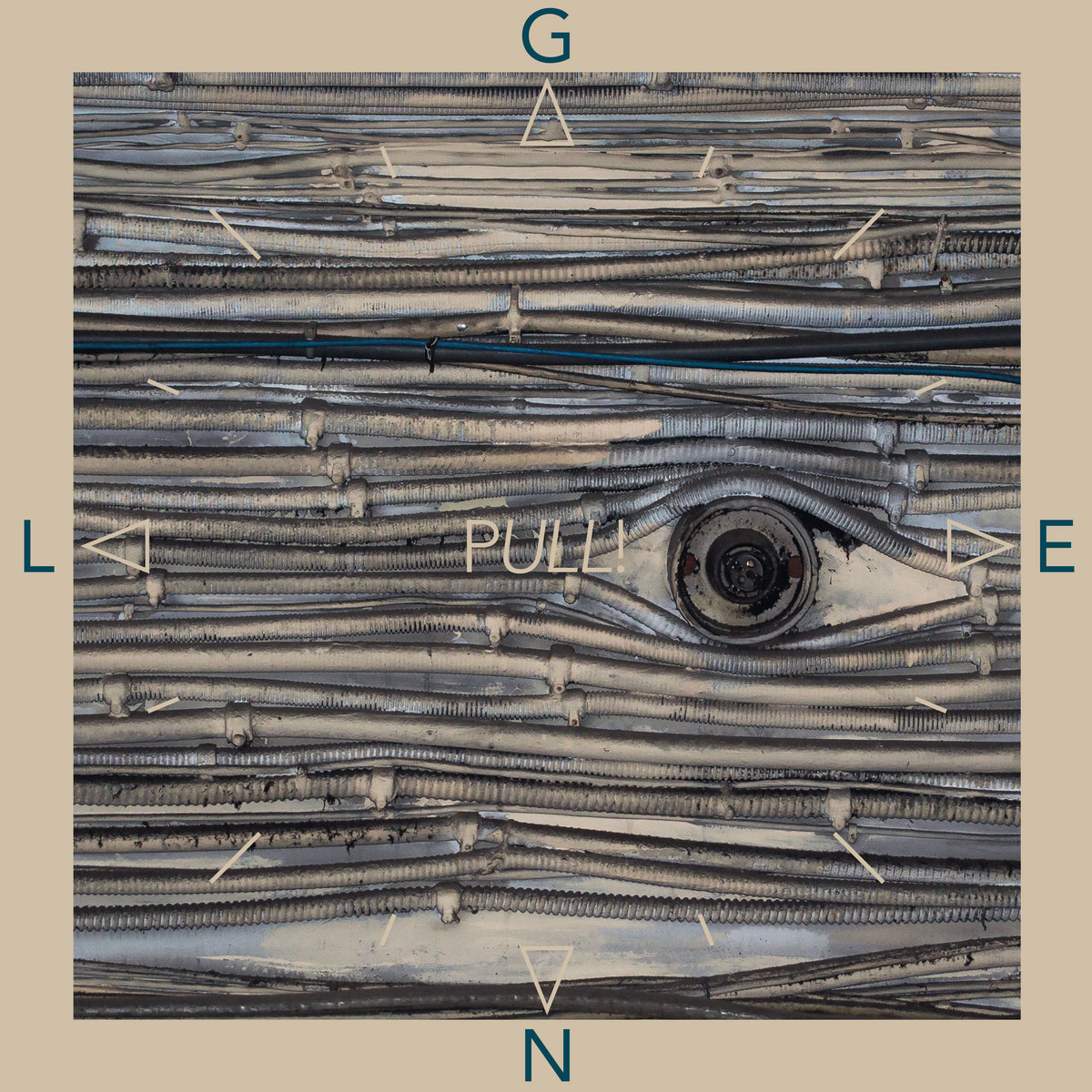
What about your debut album, ‘Crack’? What can you tell us about it?
Wilhelm: ‘Crack’ was an important step to develop Glen’s sound. It still had some choral vocal tracks but already the path to instrumental elegies like in the 16min Track D is marked. The sound is maybe rougher, as we recorded ‘Crack’ ourselves in our rehearsal space. I still like it, as it switches surprisingly in and out of different moods. Maybe Mack should do a remix.
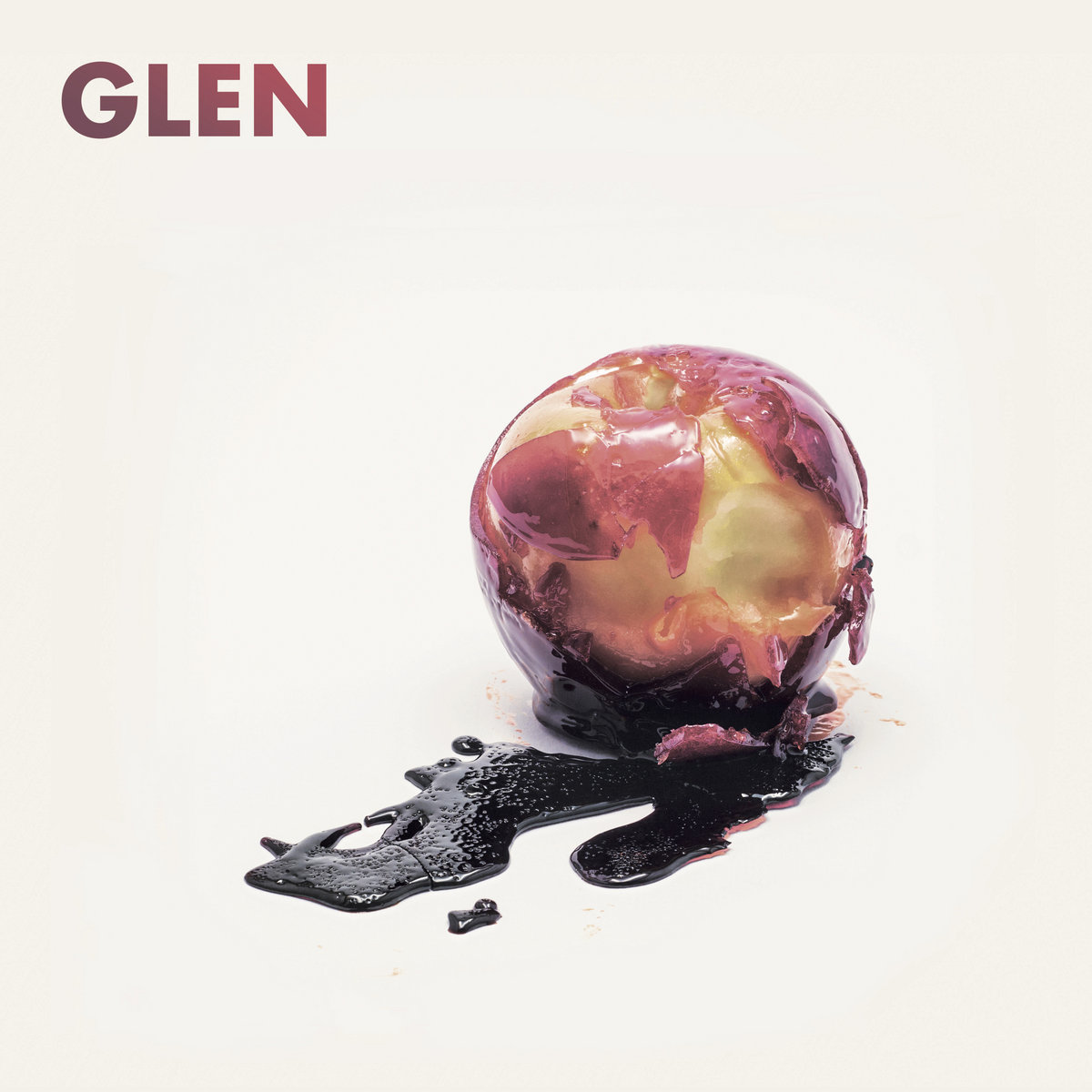
Are any of you involved in any other bands or do you have any active side-projects going on at this point?
Wilhelm: I did an experimental project with a collective of several musicians as part of a composer’s grant I got last year. The name of the project is DELTAphase. Musicians received very few details of a track, like meter, key, tempo. Everyone had to improvise and record ideas following these very few specifications, without knowing or having heard what the other collaborators compose. In the final process I edited seven tracks, and was absolutely fascinated how various musicians can communicate musically with each other, not having talked to each other, not listening to any contribution of another musician, not even knowing each other. I plan to release the recordings in December 2023.
What’s next for Glen?
Eleni: We are looking forward to the release of ‘I Can See No Evil,’ do live shows and probably a tour. And besides that, working on new material.
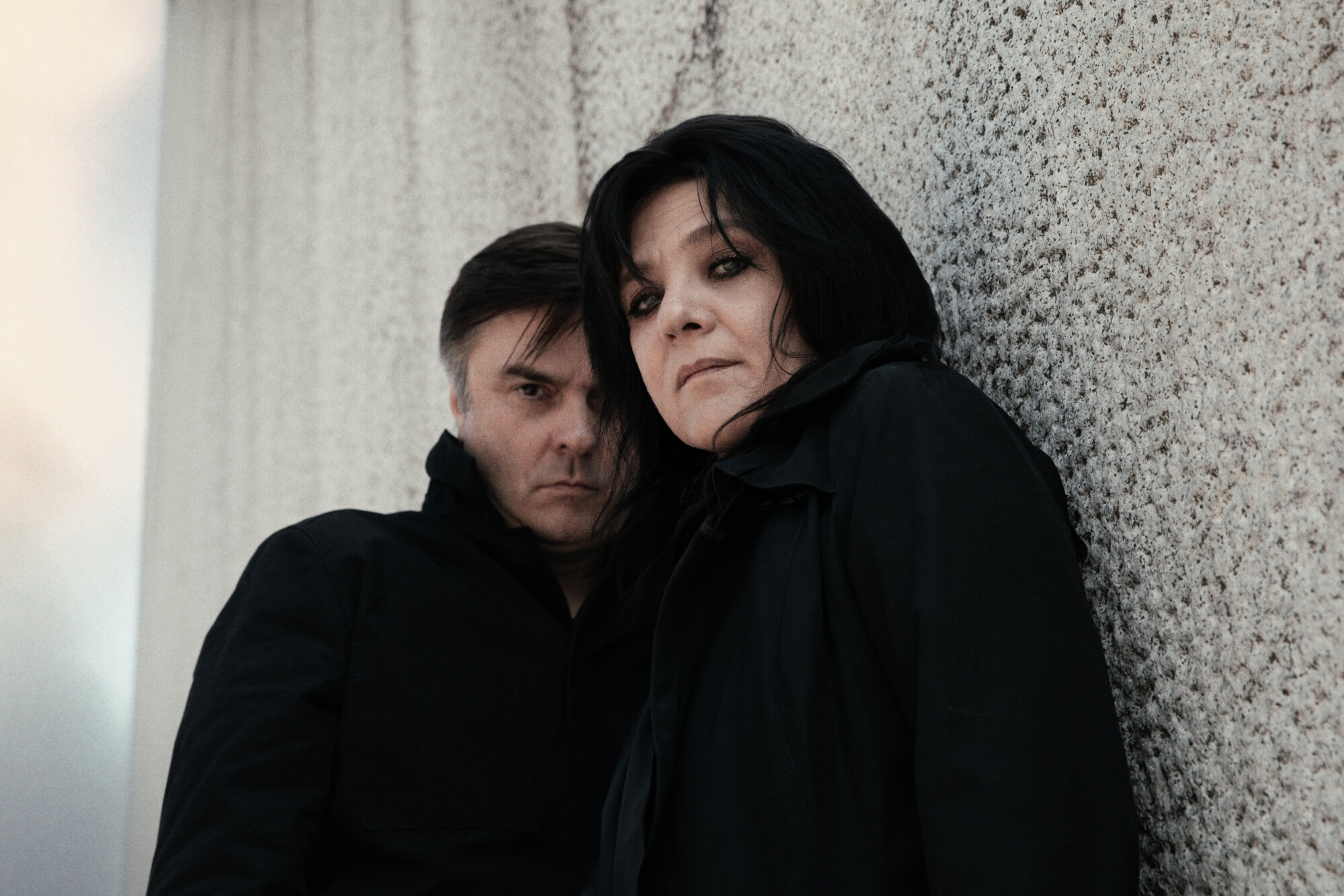
Let’s end this interview with some of your favourite albums. Have you found something new lately you would like to recommend to our readers?
Wilhelm: Name godfather for Glenn is Glenn Branca who did some great guitar orchestral compositions. His live performances are very imposingly, brutally loud and massive heavy, electric guitar noise instead of string sweetness. Favorite albums and bands are just to name a few: Suicide – ‘Suicide,’ Wipers – ‘Youth of America,’ ‘No New York Sampler,’ Gruppo di Improvvisazione Nuova Consonanza (The Group) – ‘The Feed-Back,’ Miles Davis – ‘Get Up With It’ / ‘Dark Magus,’ Golden – ‘Summer’. We also like ZU, Captain Beefheart, Pop Group, Television, Magma, Sunn O))), Sleep, Nisennenmondai, Goat (Japan), Boris, Russian Circles, Bell Witch… Do you want me to go on?
Eleni: I like to listen to field recordings compositions as well like Ron Jost’s, ‘Walking Around a Cleveland Steel Mill’ and just recently I listened to a beautiful experimental guitar sound album ‘Down On Darkened Meetings,’ Giuseppe Lelasi’s first solo LP for Oren Ambarchi’s label.
Klemen Breznikar
Headline photo: Benjamin Talsik
Glen Official Website / Facebook / Instagram / Bandcamp
Falling Elevators Official Website / Facebook / YouTube
Sound Effect Records Official Website / Facebook

